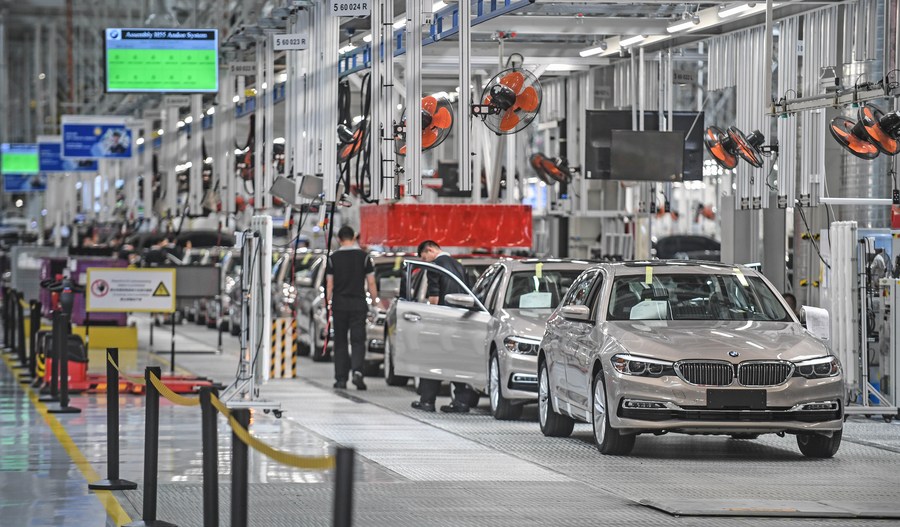Foreigners encouraged to invest in more industries

File photo shows employees working at the production line of Dadong Plant of BMW Brilliance Automotive (BBA) in Shenyang, Northeast China's Liaoning province. [Photo/Xinhua]
China is enlarging the scope of investment by foreigners with a revised catalog of industries in which such investment is encouraged, a fresh sign of opening-up and high-quality development resolve.
The National Development and Reform Commission and the Ministry of Commerce on Monday released a revised 2020 catalog of industries in which foreign investment is encouraged.
The new edition, set to be effective on Jan 27, has added 127 items from last year's version for a total of 1,235 items both for nationwide implementation as well as a secondary catalog applicable specifically to central and western regions.
The latest edition also favors foreign investment in advanced manufacturing to enhance resilience in industrial and supply chains and in modern services to boost quality in the sector, the Ministry of Commerce said in a statement on Monday.
According to the NDRC, newly added and revised listings of industries also include 5G, blockchain, maintenance of high-end equipment, online education and online health services.
In Shanghai, the city with the highest number of multinational corporations' regional headquarters on the Chinese mainland, local authorities pledged on the same day to open up a host of financial services and service trade areas as the city seeks higher-quality development.
The city's foreign investment this year is expected to exceed $20 billion, a historical high, according to local authorities.
Shanghai will embrace international agreements like the Regional Comprehensive Economic Partnership, said Hua Yuan, director of Shanghai Municipal Commission of Commerce. It also is eyeing benchmark initiatives like the Comprehensive and Progressive Agreement for Trans-Pacific Partnership for more advanced opening-up, Hua said.
























